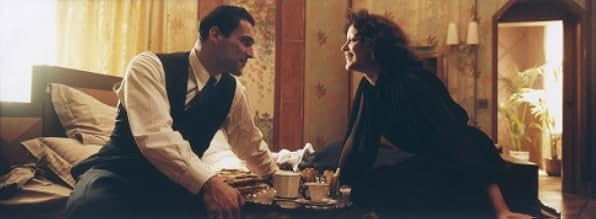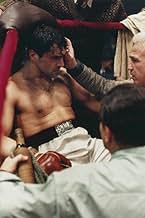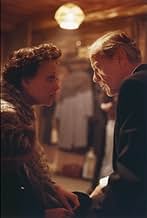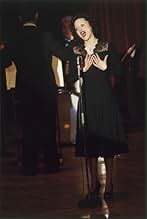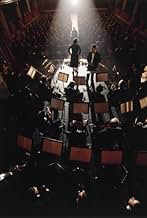Biografía de la icónica cantante francesa Édith Piaf. Criada por su abuela en un burdel, fue descubierta mientras cantaba en una esquina a la edad de 19 años. A pesar de su éxito, la vida de... Leer todoBiografía de la icónica cantante francesa Édith Piaf. Criada por su abuela en un burdel, fue descubierta mientras cantaba en una esquina a la edad de 19 años. A pesar de su éxito, la vida de Piaf estuvo llena de tragedia.Biografía de la icónica cantante francesa Édith Piaf. Criada por su abuela en un burdel, fue descubierta mientras cantaba en una esquina a la edad de 19 años. A pesar de su éxito, la vida de Piaf estuvo llena de tragedia.
- Dirección
- Guionistas
- Elenco
- Ganó 2 premios Óscar
- 48 premios ganados y 61 nominaciones en total
- Danielle Bonel
- (as Elisabeth Commelin)
- Dirección
- Guionistas
- Todo el elenco y el equipo
- Producción, taquilla y más en IMDbPro
Opiniones destacadas
Marion Cotillard as Piaf was a dream to watch... particularly when she played the older Piaf. Her pain, her loss came through exquisitely. And even the two actresses who played Piaf earlier in life were excellent. The director - Olivier Dahan - has been criticized (and rightly so) in other postings. But in the case of the 3 Piafs he has done his job well, creating the full character of the woman.
And for me the highlight was toward the end when Piaf sings NON,JE NE REGRETTE RIEN (NO REGRETS). The song written for Piaf is a summation of the film and her life. And for the first time in a VERY long time, I actually had tears on my face in a cinema.
That alone is a very high recommendation.
Title (Brazil): "Piaf – Um Hino ao Amor" ("Paif – A Hymn to Love")
Ultimately it is a film that curiously enough does not come down to acting or story so much as it owes everything to its direction by Olivier Dahan. Audiences have been divided thus far on his efforts as they are somewhat unorthodox, but I believe he has truly done something magical with what could have fallen prey to a by-the-numbers biopic approach. In La Môme, the continuity is clipped and fragmentary at several points in the film, with scene 2 melting into scene 1 as opposed to vice versa. The story of Edith seems to fledge itself around two or three story lines simultaneously her youth, her adulthood and her last days.
Marion Cotillard, a personal favourite of mine, is perfect at each of the aforementioned stages, having met the wonders of realistic make-up but also clearly having connected with the character of Edith Piaf. As a young singer she is fumbling and bird-like, but always with raw intensity behind her performance. As an old lady (although from what I understand she was never truly that old at the time of her death) she has transformed into something else a kind of loud, hysterical diva who is alternatively self-depreciative and overbearing, her youthful humility having been quenched by years of alcohol abuse and her bird-like body and gait having been crippled by rheumatism. Only once does Cotillard vaguely emerge from her character, and it is toward the end when Edith is sitting on a beach in California giving an interview. The rest of the film she is wholly chameleon-like and indistinguishable from la môme.
Certainly this type of tragicomic drama with all of its poverty-stricken episodes and heart-rending tragedies is primed to elicit an emotional response, but Dahan goes the extra mile in polishing the story for audiences. It truly is a beautiful work of art, coated with sweeping tracking shots á la Paul Thomas Anderson or Martin Scorsese blended with shakycam to capture the fast, fickle pace of the business, endlessly creative intercutting of continuity and breathtaking scenes after another. When Piaf's beautiful hands have been noted, a muted performance is given in which the camera only focuses on her theatrics and hand gestures. Yet the best scene takes place in Piaf's apartment some 2/3s into the film in which she is waiting for her lover Marcel to fly in from Morocco. I shall give no spoilers. The film is momentarily gray and depressing, only to jerk the audience away from the misery and lose itself in a blossom-strewn pictorial style whenever Piaf goes on stage.
La Môme is a one-woman-show in all respects, with Cotillard shamelessly relegating every other cast member to the background with her emotional intensity. But in all fairness supporting characters are not given much screen time in the film, seemingly floating away from the central story eventually, or dying in some tragedy, illustrating the lonely life of its titular singer. La Môme needs to be seen to be believed, for it unexpectedly floors all other musical biopics of recent years or indeed ever.
9 out of 10
¿Sabías que…?
- TriviaMarion Cotillard is one of only six actors to have won an Academy Award for a role spoken mainly in a non-English language. Sophia Loren, Robert De Niro, Benicio Del Toro, Roberto Benigni and Christoph Waltz are the other five.
- ErroresJust before a young soldier plays a song for Edith in her apartment, a supertitle reads "February 1940." An issue of "Paris Match," first published in 1949, is on the coffee table.
- Citas
American journalist: If you were to give advice to a woman, what would it be?
Edith Piaf: Love.
American journalist: To a young girl?
Edith Piaf: Love.
American journalist: To a child?
Edith Piaf: Love.
- ConexionesFeatured in Smagsdommerne: Episode #5.11 (2007)
Selecciones populares
Detalles
- Fecha de lanzamiento
- Países de origen
- Idiomas
- También se conoce como
- Çəhrayı rəngdə həyat
- Locaciones de filmación
- Praga, República Checa(scenes supposed to take place in Paris in the 1950s)
- Productoras
- Ver más créditos de la compañía en IMDbPro
Taquilla
- Presupuesto
- USD 25,000,000 (estimado)
- Total en EE. UU. y Canadá
- USD 10,301,706
- Fin de semana de estreno en EE. UU. y Canadá
- USD 179,848
- 10 jun 2007
- Total a nivel mundial
- USD 87,485,236
- Tiempo de ejecución2 horas 20 minutos
- Color
- Mezcla de sonido
- Relación de aspecto
- 2.35 : 1
Contribuir a esta página






